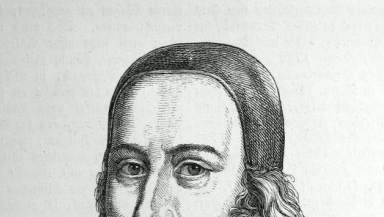
On this day in 1760, a living legend named Count Nicholas von Zinzendorf died.
This count was a rare thing: both noble aristocrat and radical Christian missionary – and his work transformed the church.
Zinzendorf, born Nikolaus Ludwig, was born in Dresden, Germany in 1700. He was the godson of the founder of pietism, Philipp Jakob Spener. Pietism was a branch of Lutheran Christianity which emphasised the importance a heartfelt evangelical faith alongside fervent prayer and Bible study. The Pietist movement influenced much of contemporary evangelicalism, and touched Nikolaus deeply too.
Zinzendorf grew up in the Lutheran Church, but soon broke free to form his own denomination. This began when he took in religious refugees from Moravia and Bohemia and formed a community called Herrnhut on his vast estate. His community signed a document called the Brotherly Agreement in 1727 – and there, many say, began the Moravian Church.
In 1727 the Moravians experienced a spiritual revival that they likened to Pentecost, and it sparked a new missionary dynamic in the community, sending the Moravians across the world and to the Americas. One standout innovation of the community was a 24-hour prayer watch, that allegedly remained uninterrupted for a century. This fervent petition helped inspire the 24/7 prayer movement now practiced by churches across the world.
Zinzendorf himself was convicted by the suffering of slaves in the Caribbean islands, and since his wealth gave him vast resources, sent many missionaries there, as well as travelling far himself. When Moravians were abused by the islands' plantation owners, the slaves were moved by the Christ-like sacrifice and conviction of the missionaries.
The count was also a prolific hymn writer, penning some 2,000 in his lifetime. His most famous is 'Jesus, thy blood and righteousness', which includes these verses:
'Bold shall I stand in Thy great day;
For who aught to my charge shall lay?
Fully absolved through these I am
From sin and fear, from guilt and shame.
Jesus, the endless praise to Thee,
Whose boundless mercy hath for me—
For me a full atonement made,
An everlasting ransom paid.
O let the dead now hear Thy voice;
Now bid Thy banished ones rejoice;
Their beauty this, their glorious dress,
Jesus, Thy blood and righteousness.'
Zinzendorf used his great wealth and connections in the service of God and people, and his generous reach stretched across the world. Thousands mourned his death.













